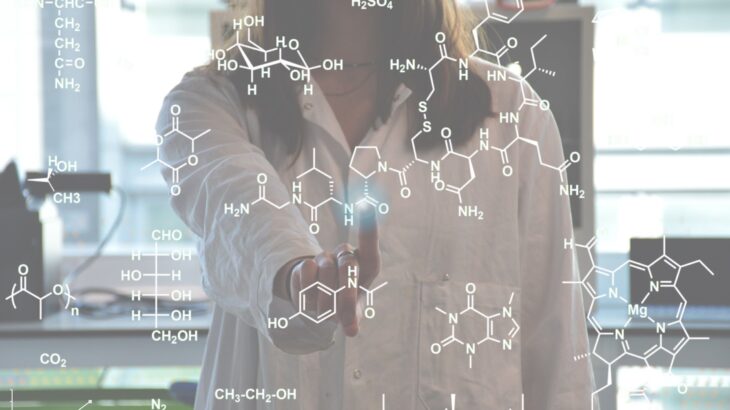SES members to share in £100m boost to AI research

Nine new research hubs bringing together universities from across the UK will receive £80m to deliver revolutionary AI technologies with SES members playing a leading role in three.
The hubs funded by the Engineering and Physical Sciences Research Council aims to propel the UK to the forefront of advanced AI research.
Additional funding for ten scoping studies has been provided by the Arts and Humanities Research Council (AHRC) to define responsible AI across education, policing and the creative industries.
Imperial College London and the University of Liverpool will lead a £12m research Hub to develop state-of-the-art AI for chemistry.
The AI for Chemistry Hub, AlChemy, will bring together a collaborative community including leading academic researchers and industry, offering training and creating new approaches at the rapidly evolving AI-chemistry interface.
The Hub will transform chemistry engagement with AI from a relatively niche activity to a core platform methodology, positioning the UK as the global leader in digital chemistry.
Professor Kim Jelfs, from the Department of Chemistry and the Institute for Digital Molecular Design and Fabrication at Imperial, and Professor Andy Cooper, from Liverpool’s Department of Chemistry and Materials Innovation Factory, are co-leading the UK-wide consortium. It brings together internationally recognised researchers in AI and those at the interface of AI for chemistry from nine academic institutions.
‘Start of a revolution’
Professor Mary Ryan, Vice-Provost (Research and Enterprise) at Imperial and an SES advisory board member, said we are at “the start of a revolution” in all technology areas, driven and enabled by advances in AI.
“To take advantage of this for the UK chemistry sector requires deep collaboration between fields, and the development and deployment of new tools for discovery and translation. I’m excited to see the impact this hub will undoubtedly generate over the coming years.”
A hub based at the University of Oxford will focus on the mathematics and computational research which is foundational to AI and which could unlock new, more efficient AI systems. In particular, the hub will seek AI breakthroughs by employing theoretical tools from underexplored mathematical fields.
Led by Professor Michael Bronstein this research will focus on developing rigorous mathematical answers to fundamental questions that underlie modern AI and machine learning systems.
Although based at Oxford, the hub will have a broad geographic coverage across the UK, bringing together leading experts in the mathematical, algorithmic, and computational fields underpinning AI and machine learning systems as well as their applications in scientific and industrial settings.
Next generation
Close links with a range of industry partners will enable the research team to test promising models in applied settings and achieve early impact. The hub will also contribute to developing the next generation of AI researchers and will train at least 13 PhD students.
The University College London AI hub in Generative Models, led by Professor David Barber, will develop tools to help build responsible generative models.
Based at the UCL Centre for Artificial Intelligence, the hub will develop tools that industry, science and government can use to build responsible generative models to benefit the economy and society.
Professor Barber said: “The hub brings together a fantastic team from across the UK, including researchers from Cambridge, Oxford, Edinburgh, Cardiff, Manchester, Imperial, Surrey and UCL, to ensure the UK remains at the forefront of these technologies. We will address the technical, ethical and societal implications of their development and support economic development.”
With a combined £1.23m grant, Queen Mary University of London will conduct two research projects, leading on the “CREAATIF” project to assess impact of AI on creative work, awarded as part of the AHRC BRAID Programme.
Engaging creative workers
The project tackles the impact of Generative AI’s impact on creative industries. Funded with £275,000, it directly engages creative workers to assess impacts on their fundamental rights and working conditions in the face of these new technologies.
Professor Andrew Livingston, Vice-Principal for Research and Innovation, and SES advisory board member said: “Queen Mary is deeply proud to be among the few institutions chosen for these highly competitive grants. “Securing them reflects our unwavering commitment to responsible and impactful AI research. CREAATIF’s focus on human-centric AI aligns perfectly with our values… We are excited to contribute to these crucial endeavours and play a leading role in shaping the future of AI.”
SES institutions also contribute to projects led by other universities across the UK. Imperial and the University of Southampton support the national edge AI hub for real data led by Newcastle University.
The Alchemy consortium led by Imperial and Liverpool brings together UCL and Universities of Cambridge, Oxford, Southampton along with three other UK universities and more than 15 industry partners.
The hub based at Oxford involves researchers at Imperial, Queen Mary, Southampton plus the Universities of Aberdeen and Durham.


